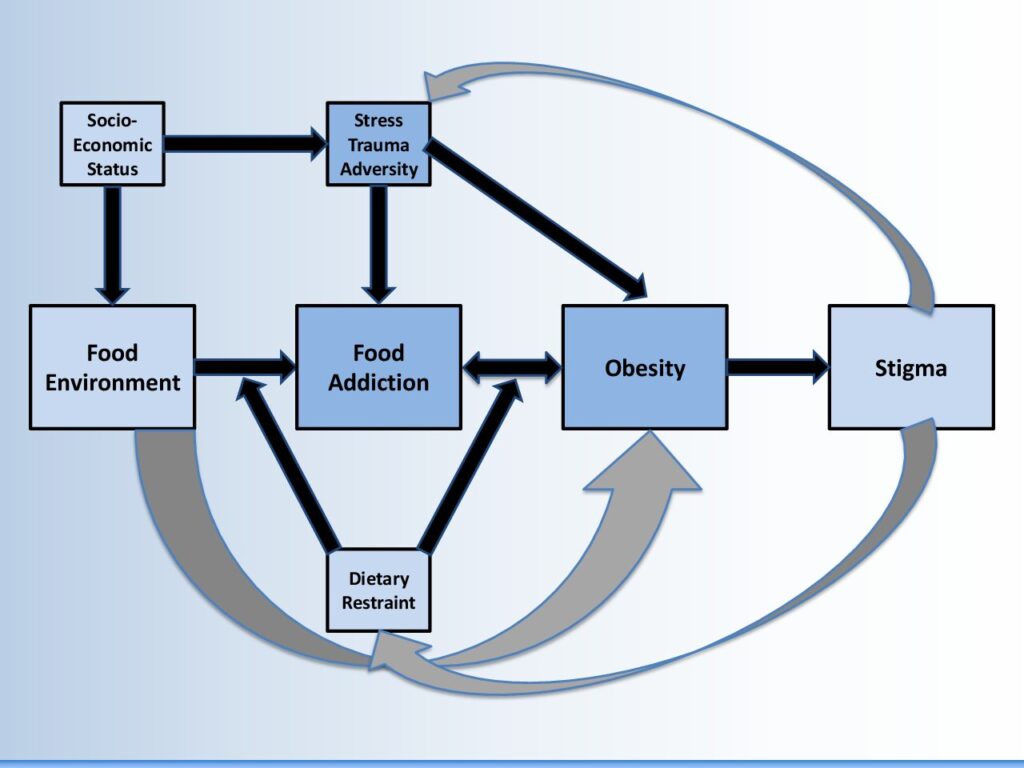Food addiction and psychosocial adversity: Biological embedding, contextual factors, and public health implications
By David A. Wiss, Nicole Avena, & Mark Gold

Abstract The role of stress, trauma, and adversity particularly early in life has been identified as a contributing factor in both drug and food addictions. While links between traumatic stress and substance use disorders are well documented, the pathways to food addiction and obesity are less established. This review focuses on psychosocial and neurobiological factors […]
Subscribe for weekly insights and research exploring the link between nutrition & mental health.
Abstract
The role of stress, trauma, and adversity particularly early in life has been identified as a contributing factor in both drug and food addictions. While links between traumatic stress and substance use disorders are well documented, the pathways to food addiction and obesity are less established.
This review focuses on psychosocial and neurobiological factors that may increase risk for addiction-like behaviors and ultimately increase BMI over the lifespan. Early childhood and adolescent adversity can induce long-lasting alterations in the glucocorticoid and dopamine systems that lead to increased addiction vulnerability later in life. Allostatic load, the hypothalamic-pituitary-adrenal axis, and emerging data on epigenetics in the context of biological embedding are highlighted.
A conceptual model for food addiction is proposed, which integrates data on the biological embedding of adversity as well as upstream psychological, social, and environmental factors. Dietary restraint as a feature of disordered eating is discussed as an important contextual factor related to food addiction. Discussion of various public health and policy considerations are based on the concept that improved knowledge of biopsychosocial mechanisms contributing to food addiction may decrease stigma associated with obesity and disordered eating behavior.
